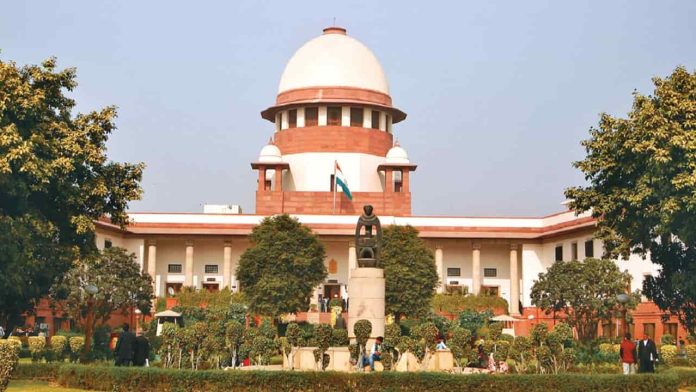The Supreme Court on Thursday observed that while it was important to consider the rights of a woman to autonomy, it could not become oblivious to the rights of an unborn child.
The three-judge Bench of Chief Justice D.Y. Chandrachud, Justice J.B. Pardiwala and Justice Manoj Misra made the observation while hearing the plea of a married woman seeking medical termination of her 26-weeks pregnancy.
The Bench decided to hear the matter tomorrow at 10:30 am.
The Apex Court expressed serious concerns about allowing the application, noting that permitting termination at this stage, after the medical report has said that the foetus has a high chance of survival, may amount to foeticide.
Appearing for the Central government, Additional Solicitor General (ASG) Aishwarya Bhati argued that the ‘exceptional’ circumstances which allowed the termination of pregnancy post 24 weeks under the Medical Termination of Pregnancy (threat to life of mother or foetal abnormality) did not exist in the case at hand.
As per Bhati, a mother’s right of decisional autonomy or other reproductive rights were not absolute in nature and were circumscribed by the law made by Parliament. In the present case, the law had not been challenged.
Regarding the X judgement relied upon, the ASG said in that case, there was a challenge to the rule which prevented an unmarried woman from seeking termination after 24 weeks.
She referred to the Supreme Court which declared that unmarried women were also entitled to seek abortion of pregnancy in the term of 20-24 weeks arising out of a consensual relationship.
The ASG said in that case, Rule 3B of the Medical Termination of Pregnancy Rules, which differentiated between married and unmarried women, was challenged. The Apex Court had held that the exclusion of unmarried women who conceived out of live-in relationship from the Rules was unconstitutional, she added.
The ASG, while submitting the AIIMS’ medical board’s opinion, said that as per the current status of the foetus, it had a reasonable chance of survival. Carrying out the termination would amount to a foeticide, she noted.
She said the petitioner was herself not sure of termination and was in a ‘vulnerable’ state. She said the government had also tried to counsel the petitioner, who had agreed at one stage to carry the full-term pregnancy and give the baby for adoption. The ASG assured the Apex Court that AIIMS would take care of mental health issues of the baby and the mother.
The CJI asked the Counsel for the petitioner whether she wanted the doctors to be directed to close the foetal heart?
The counsel apprised the Apex Court that the petitioner did not want the child to be aborted at present, but was seeking permission to deliver the child through C-section now, rather than waiting till the full term.


